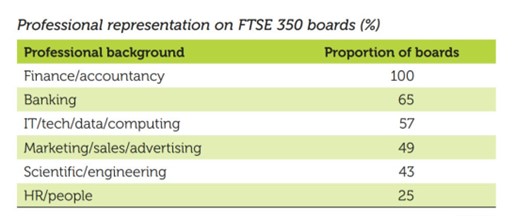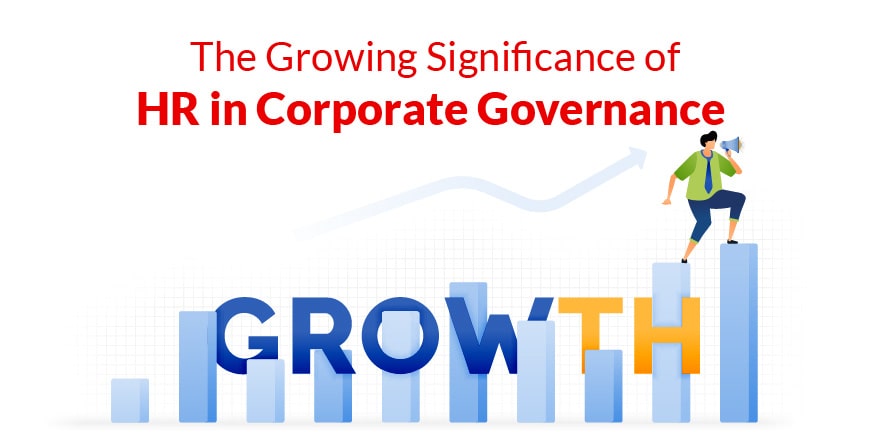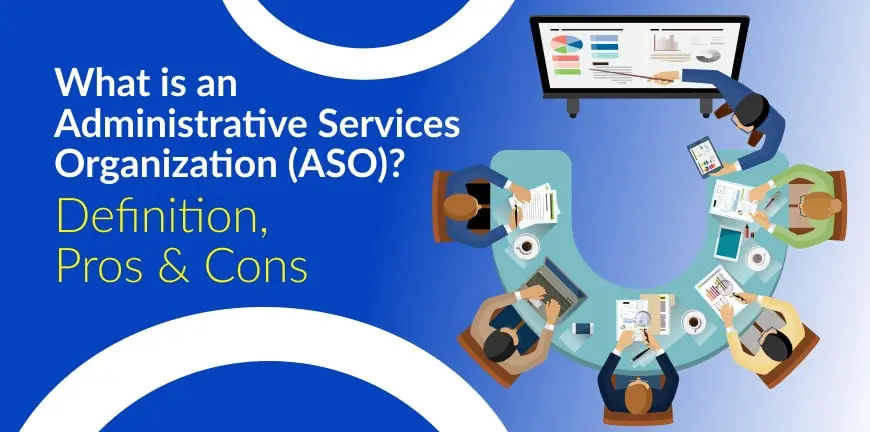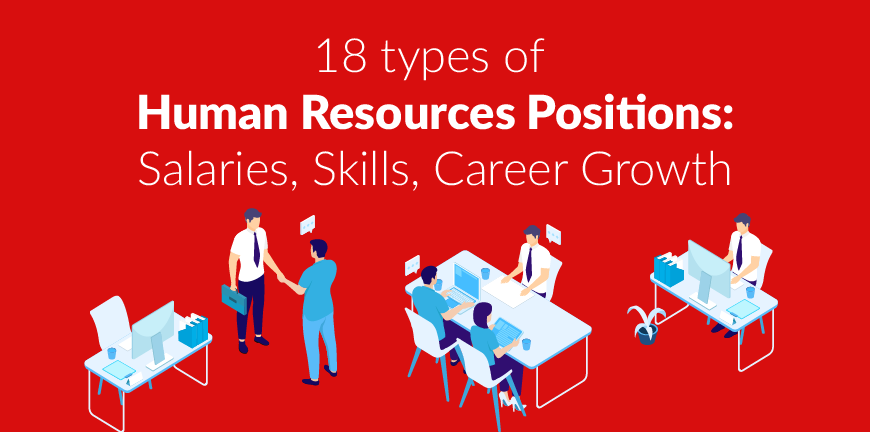
Top 10 Benefits of Employee Training and Development
20/09/2023
Compliance Management for Indian Startups: How Easy Is It?
22/09/2023In general, an HR professional is always envisioned as or is assumed to be a generalist, someone busy managing events or ready to put bottlenecks for issues or challenges faced by employees. But in reality, HRs are so much more than that.
Of course, traditionally, HR departments have been associated with recruitment, employee relations, and personnel management. However, with the evolving business landscape, HR’s role has evolved as well. Considering the current scenario, HR professionals have been uniquely positioned to influence corporate governance positively, as they have a profound impact on the organization’s culture, policies, and practices.
What is Corporate Governance?
Corporate Governance is a set of rules, practices, and processes that govern or direct a firm’s operations. It mostly revolves around protecting the interests of a company’s stakeholders. It is what the board of a company does and how it sets the values of a company.
The responsibilities of the board include –
- Setting up the company’s strategic aims
- Providing the right leadership to achieve the goals and objectives of the company
- Supervising the management team
- Reporting to shareholders on their stewardship
- Complying with legal, regulatory requirements
- Complying with environmental and local community needs.
Why do you need Corporate Governance?
Every organization must strive to achieve exceptional corporate governance as:
- It is one of the key components in maintaining community and investor relations.
- It improves accountability and transparency within existing systems.
Apple Inc.’s investor relations site outlines its corporate leadership. Additionally, it provides corporate governance information, including its committee charters and governance documents, such as bylaws, stock ownership guidelines, and articles of incorporation.
Apple. “Investor Relations. Leadership and Governance.”
Example of failed corporate governance
The Enron scandal is an example of poor corporate governance. Enron Corp. declared bankruptcy in 2001 — just months before it was one of the largest companies in the U.S. Enron falsely reported its revenue by a wide margin and used fraudulent methods to hide debts and toxic assets from investors and regulators to avoid accountability.
Human Resources (HR) could have played a crucial role in preventing or mitigating the scandal had it been more proactive in several ways:
- Enron employees were often afraid to speak up about irregularities due to fear of retaliation. HR could have put mechanisms in place to protect whistleblowers from reprisals.
- Collaborate with legal and compliance teams, ensuring that the company adheres to all relevant laws and regulations.
- In Enron, low morale and fear among employees were significant indicators of problems. HR could have addressed this effectively.
- Collaborate with finance and audit teams to establish strong internal controls and auditing procedures that could have reduced the risk of financial mismanagement or fraud.
- Developed crisis management plans, including communication strategies, should unethical behaviour or financial irregularities be uncovered.
This scandal had a lasting effect on Wall Street and led the government to pass new regulations on corporate accountability and governance.
Having good corporate governance in place is important for many reasons-
- It helps protect the interests of the shareholders of the company.
- minimizes conflicts of interest between various stakeholders and with any individual party.
- Promotes transparency, accountability, fairness, and prevents abuse of power.
- Helps identify and manage financial, operational, legal, and reputational risks.
- Will have better access to capital as investors are likely to invest in companies with good corporate governance.
- Helps in adherence to legal and regulatory requirements.
- Helps integrate social and environmental responsibility.
Role of HR expertise in Corporate Governance
Researchers have found that the majority of questions that are faced by the board concern people aspects of corporate governance.
While financial governance has always been top priority for investors in the past, aspects of people governance/ importance of HR leadership have become more important over the years. Boards must have the ability and appetite to engage with, and have a good understanding of, the many complex people challenges faced by businesses.
While the boards have financial expertise, unfortunately, enough, the result showed that three-quarters of companies have nobody with HR experience on their board.

Source: CIPD
Researchers listed a list of HR skills and qualifications the board needed in order to add value to corporate governance.
1. Better understanding of remuneration
When HR leaders are on board, the remuneration committee always takes control. Their experience of managing pay, understanding the sensitivities around remuneration, psychology of initiatives, and the impact of rewards on employee motivation is a huge plus to maintain good corporate governance.
2. Succession Planning
The HR’s expertise around recruitment and retention of employees at all levels, but especially at senior leadership, is invaluable, and is deeply relevant at the board level.
3. Effective analysis of people data
The extensive expertise senior HR leaders possess in identifying and gathering people data helps companies to effectively measure and monitor their performance as employers. It also helps interpret this data, linking it to organizational performance.
4. Expertise in managing diverse workforces
It is critical to effectively manage diverse workforces, employee needs, and expectations sensitively and professionally if you want to maintain the ethics and culture of your corporate environment. Nobody is fit enough to do this job other than the HR.
5. Expertise in organizational change and team dynamics
The fast-paced technological change and shift to a net-zero economy need an HR leader’s extensive experience to lead the OD transformation. Also, understanding and having insights are crucial, especially at the board level.
Research suggested the elements that a corporate sustainable approach to human resources might entail. Some of the elements include-
- Creating a high-trust dynamic across all levels of employment.
- Implementing employee share ownership is linked to a long-term commitment to the firm and market value.
- Reinforcing the legitimacy of the firm through sustainability, ethics, and diversity.
- Training employees on environmental, ethical, and diversity issues.
- Enabling employee involvement in sustainability initiatives and decisions.
- Linking performance appraisal and rewards to sustainability, ethics, and diversity.
Example of HR making a positive difference in corporate governance
Implementation of robust whistleblower protection and reporting mechanisms. Whistleblowing is the act of employees or stakeholders reporting unethical or illegal activities within an organization. When HR plays a proactive role in this process, it can have a significant impact on corporate governance for the following reasons:
- Create a culture of ethical behaviour by promoting the importance of reporting misconduct and ensuring that employees feel safe when doing so, fostering a culture of transparency and accountability.
- Help ensure that the organization complies with relevant laws and regulations by establishing procedures for reporting and investigating misconduct.
- Establish policies and procedures to protect whistleblowers from retaliation, maintaining trust within the organization.
- Initiate and oversee investigations into reported misconduct, ensuring that allegations are thoroughly examined and appropriate actions are taken to address any wrongdoing.
- Facilitation of the reporting of whistleblower complaints and investigations to the board of directors or relevant oversight bodies.
- Establish mechanisms for monitoring the effectiveness of whistleblower programs and making improvements when necessary.
Conclusion
The ultimate aim of every organization is to safeguard its reputation. How can they achieve this? By enhancing trust among stakeholders and contributing to a more responsible and accountable corporate governance framework. Human Resources (HR) can make a significant and positive difference in corporate governance by championing ethical behaviour, ensuring compliance with laws and regulations, protecting whistleblowers, facilitating investigations, fostering transparency, and continuously monitoring and improving governance mechanisms.
HR’s proactive role in promoting ethical conduct and accountability is integral to building a culture of integrity within an organization and reinforcing the principles of good corporate governance.
Contact Us For Business Enquiry

Rajkumar Shanmugam
Rajkumar Shanmugam is the Head of HR at ALP Consulting, bringing over 19 years of comprehensive HR leadership experience across India and international markets. His expertise spans talent acquisition, employee relations, performance management, compliance, and HR transformation. Rajkumar has a proven track record of driving people-centric initiatives, enhancing workplace culture, and aligning HR strategy with business goals. With extensive experience in US staffing operations and global mobility, he continues to lead organizational excellence through innovation and employee engagement.




